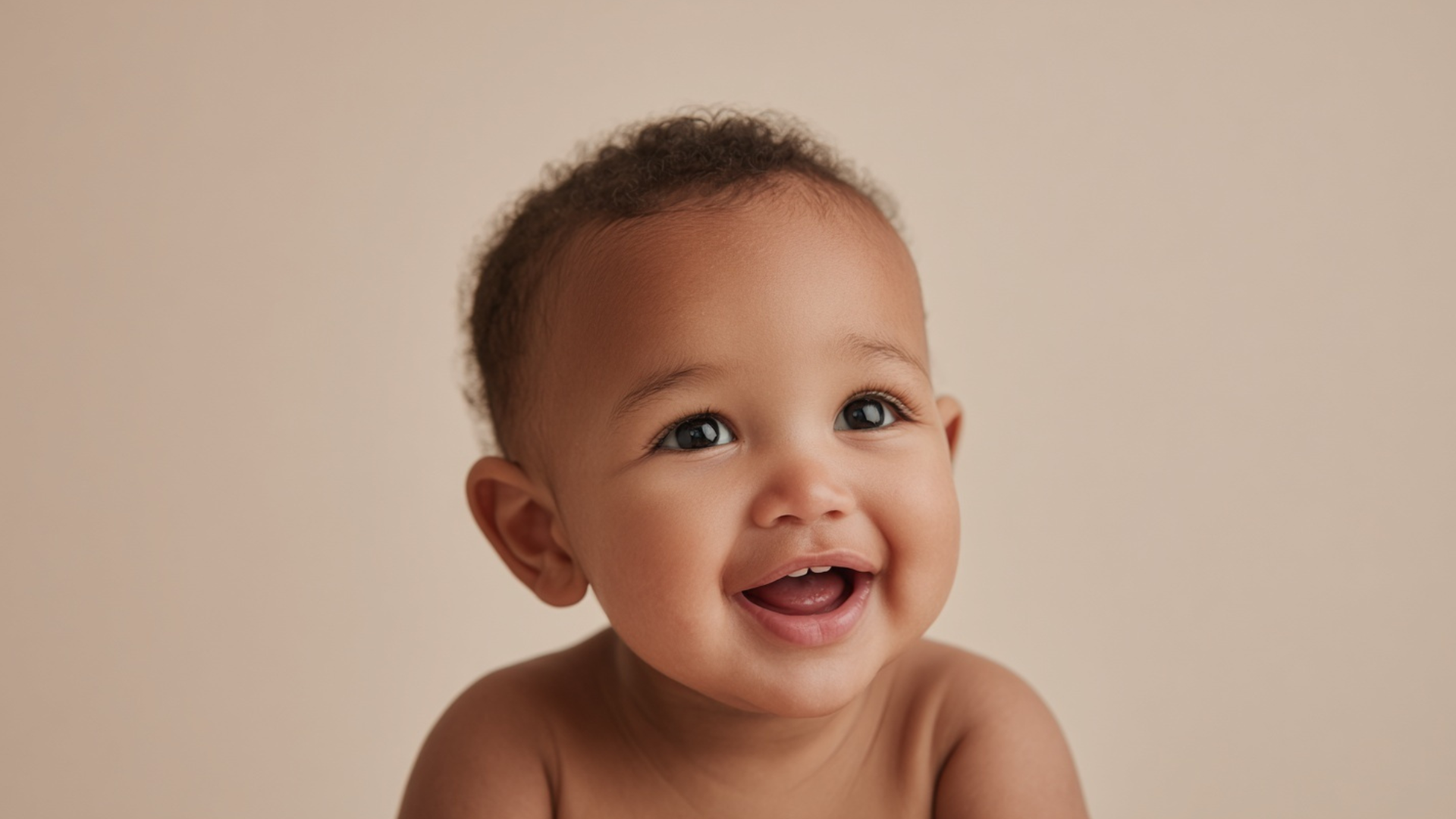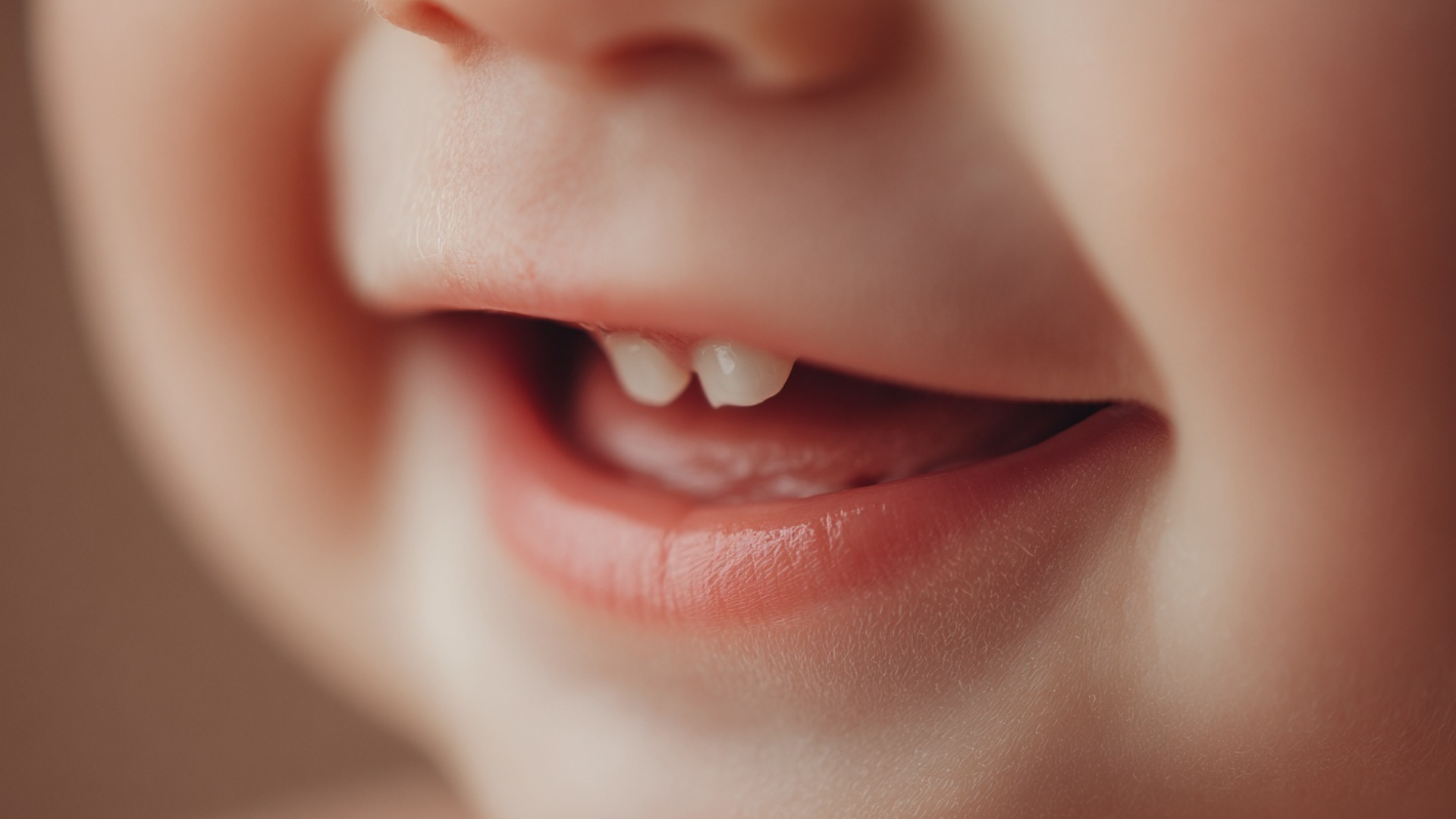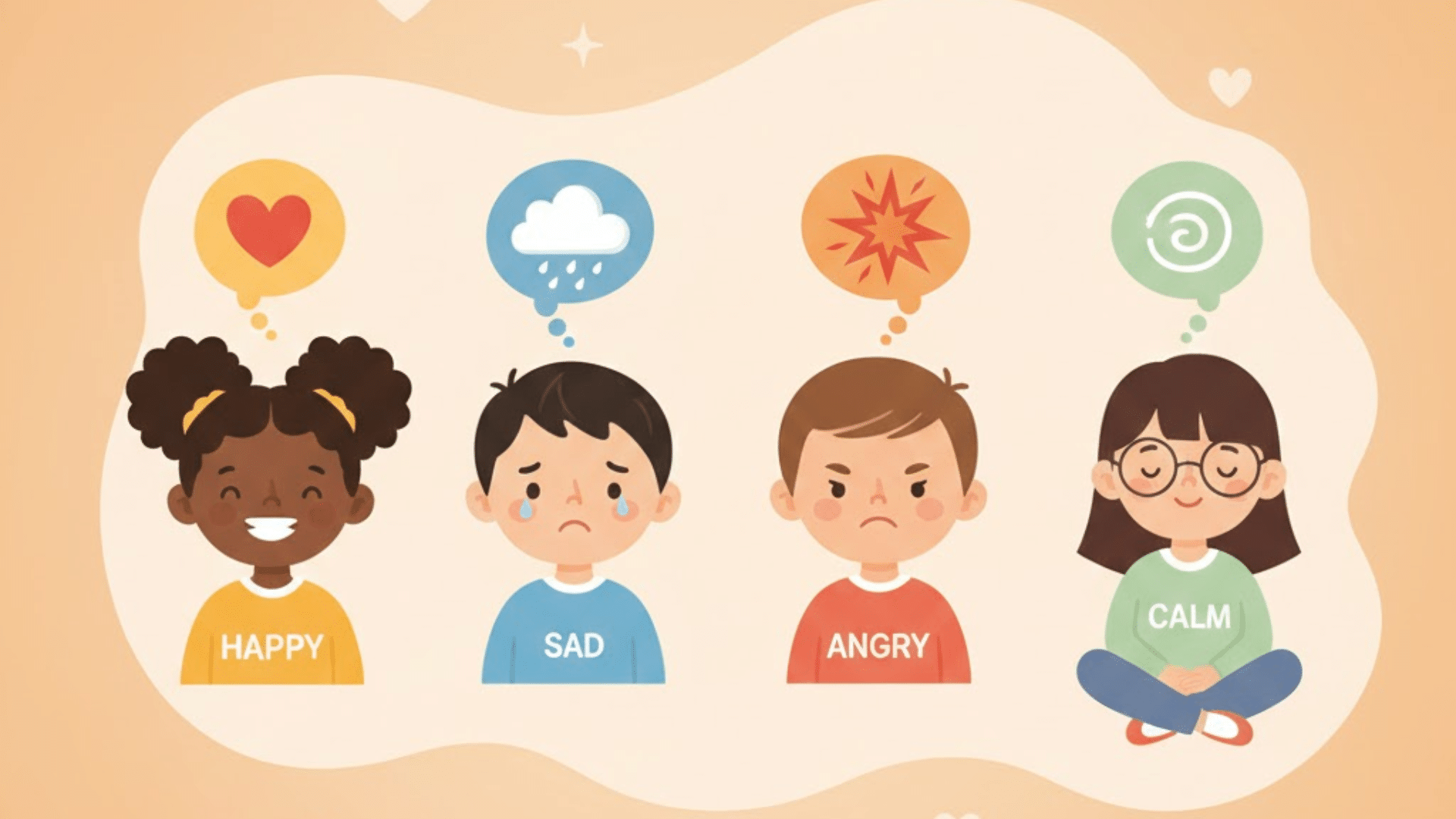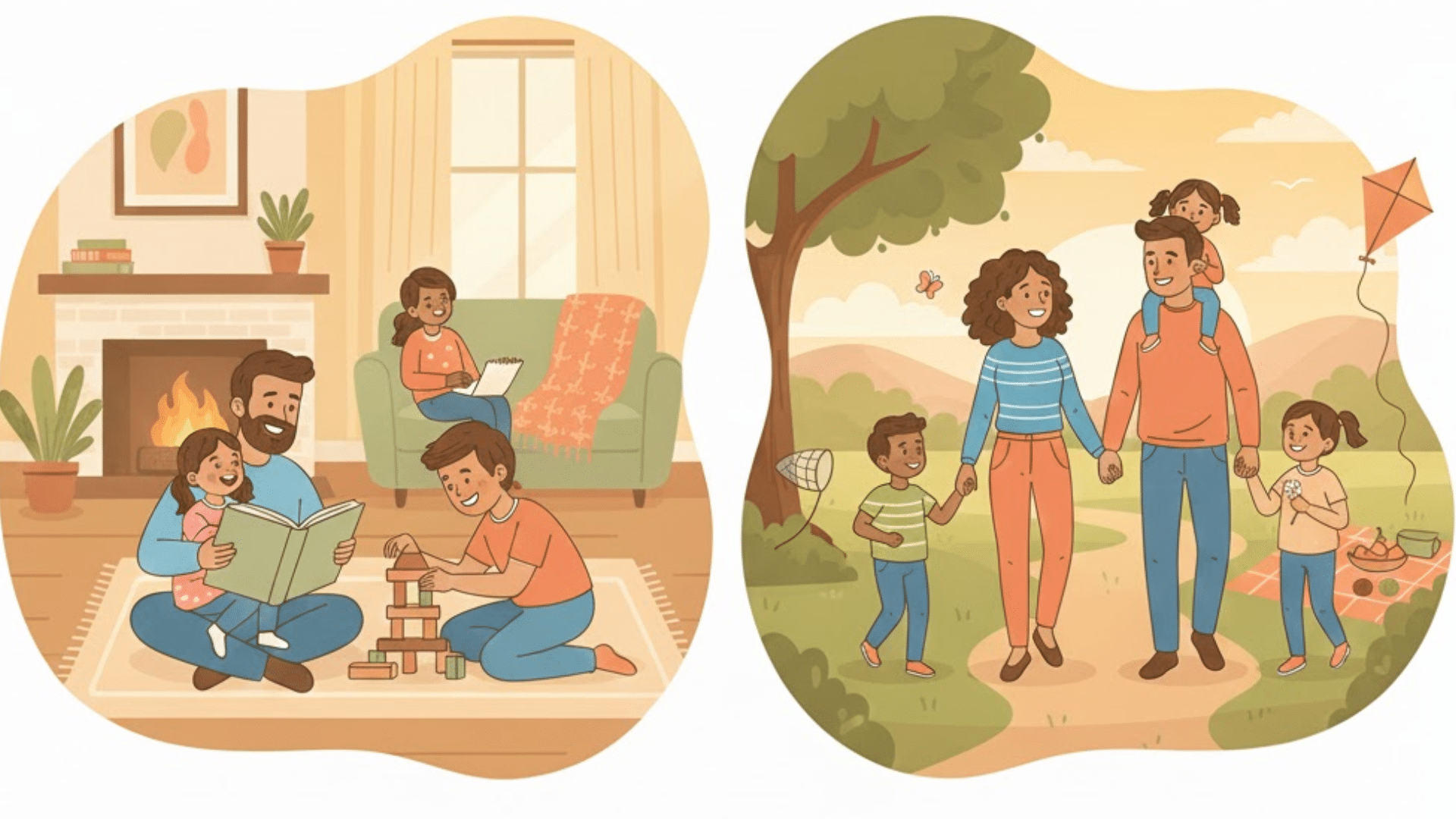Have you ever wondered what if a baby gets upper teeth first? Many parents are surprised when those tiny top teeth show up before the bottom ones.
It can raise questions about what’s normal, if it signals a problem, or if you should call the doctor.
This blog will walk you through the usual teething order, reasons why some babies get top teeth first, signs to watch for, and simple ways to ease discomfort.
You’ll also find answers to common myths and concerns, so you can feel more confident during this stage. Learn what’s normal and when to worry. Let’s read it.
Is It Normal for Babies to Get Upper Teeth First?
It’s perfectly normal for some babies to get their upper teeth before the lower ones. While most little ones usually start with the bottom front teeth, variations in the order are common and not a cause for worry.
Every baby follows their own timeline, and the sequence can shift without affecting long-term dental health.
What matters most is that teeth continue to come in steadily, whether top or bottom, rather than sticking to an exact textbook order.
Think of it as your baby’s unique smile making its debut – sometimes in a surprising way. And often, those tiny teeth still follow through with a full set by age three, no matter which ones pop up first.
Usual Baby Teething Order and Timeline
Babies usually follow a general pattern when their teeth come in, but the exact timing can vary a lot from child to child. Having a rough idea of the order helps you know what to expect and spot if things are moving along normally.
| Tooth Type | Usual Age Range (Months) |
|---|---|
| Lower Central Incisors (bottom front) | 6 – 10 months |
| Upper Central Incisors (top front) | 8 – 12 months |
| Upper Lateral Incisors (sides of top front) | 9 – 13 months |
| Lower Lateral Incisors (sides of the bottom front) | 10 – 16 months |
| First Molars (back teeth, top & bottom) | 13 – 19 months |
| Canines (pointed teeth) | 16 – 22 months |
| Second Molars (very back teeth, top & bottom) | 23 – 31 months |
The first teeth often appear around 6 months, and by age 3, most children have a full set of 20 baby teeth. To make this easier to follow, here’s a simple teething timeline:
Why Do Some Babies Get Upper Teeth First?

Some babies surprise their parents by showing upper teeth before the lower ones, and that’s usually nothing to worry about. Several factors can explain why this happens:
1. Genetics and Family Patterns
Teething often follows family trends, so if you or close relatives got upper teeth first, your baby might do the same.
Genetics can influence not just the timing but also the sequence of eruption. While every child is unique, family history can offer a helpful clue about what to expect during your baby’s teething stage.
2. Developmental Differences in the Jaw and Gums
Sometimes the upper jaw or gum tissue develops a little quicker than the lower jaw. This can make it easier for the top teeth to emerge before the bottom ones.
These differences are simply part of natural growth and don’t indicate any problems. They reflect the unique way each baby’s body develops at its own pace.
3. External Factors (Nutrition, Health, Premature Birth)
A baby’s overall health and early development can influence teething patterns. Good nutrition supports healthy teeth and gums, while being born a little early may slightly shift the timing of eruption.
These variations are common and usually temporary. As long as teeth continue to come in over time, there’s typically no cause for concern.
When to Worry and Call a Doctor
Most of the time, teething – even if the order is unusual – is completely normal. But there are certain signs that mean it’s a good idea to call your pediatrician or dentist.
- Teething is usually normal: Even if teeth appear in a different order, most cases don’t need medical attention.
- When to call a doctor: Contact a pediatrician or dentist if your baby has a fever, swollen or red gums, refuses to feed, or if teeth are very delayed.
- Red flags to watch: Unusual symptoms, excessive discomfort, or feeding and sleeping problems may signal more than typical teething.
- Trust your instincts: If something feels wrong beyond normal fussiness, it’s safer to get it checked.
- How doctors help: They can rule out infections, ensure healthy development, and suggest safe ways to ease pain—giving you peace of mind.
Does Teething Order Affect Future Dental Health?
No, teething does not affect future dental health.
Many parents worry that teeth coming in “out of order” could cause future problems, but experts say it doesn’t impact alignment, chewing, or speech. These depend more on jaw growth and how permanent teeth come in.
As long as all 20 baby teeth erupt within the normal age range, your child’s smile is developing normally.
What truly matters is keeping those teeth healthy with regular cleaning, dental visits, and good oral habits. The order might surprise you, but it won’t harm your baby’s smile
Managing Teething Symptoms
Teething can make babies fussy and uncomfortable, but there are simple ways to ease their symptoms and keep them comfortable. A few trusted approaches include:
- Safe teething toys and remedies: Offer your baby soft, BPA-free teething rings or toys they can safely chew on. These help relieve pressure on the gums. Avoid teething gels or remedies with numbing agents unless recommended by a doctor.
- Feeding tips when the baby has top teeth: If nursing, you may notice a little biting – gently break the latch and try again to discourage it. For bottle-fed babies, make sure nipples are the right size so feeding feels smooth. Offering soft foods at the right stage can also reduce gum irritation.
- Comfort techniques: A chilled (not frozen) washcloth can soothe sore gums. Gently massaging your baby’s gums with a clean finger can also provide quick relief. Extra cuddles and calm playtime help distract from discomfort.
Cultural Beliefs and Myths About Upper Teeth First
Across the world, families have passed down stories and beliefs about the order of teething. Some traditions suggest that upper teeth coming in first can carry special meaning or signal something about a child’s future.
While these ideas are part of cultural heritage, modern science tells a different story.
Pediatric dentists reassure parents that the order of teething has no hidden meaning and doesn’t affect a child’s health, development, or personality. It’s simply one of the many normal variations in how babies grow.
Conclusion
Teething can be an exciting but confusing stage, especially when your baby’s upper teeth come in first. The truth is, every child develops at their own pace, and small differences like this are completely normal.
What matters most is keeping your baby comfortable, helping them through the fussiness, and taking care of those new teeth as they appear.
Stay consistent with gentle cleaning, regular dental checkups, and plenty of patience.
If something doesn’t feel right or your baby seems unusually uncomfortable, talk to your pediatrician or dentist for reassurance.










